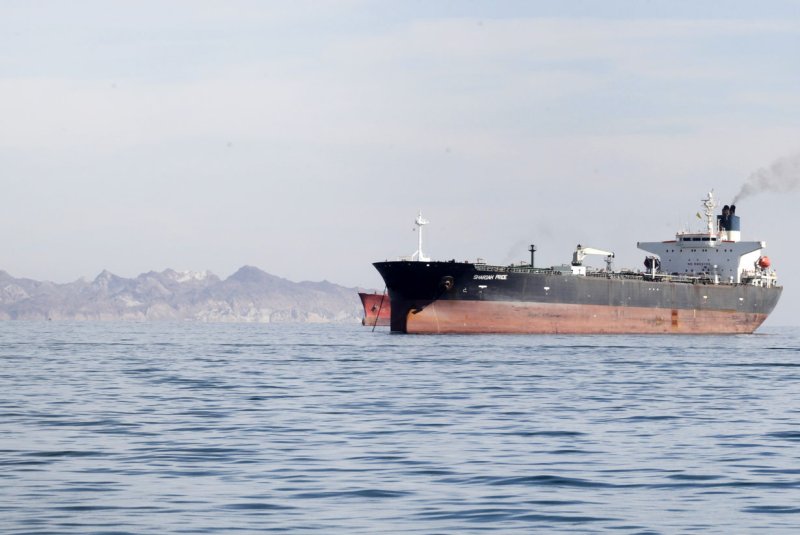The economies of the countries near the Persian Gulf are handicapped somewhat by increasing geopolitical tensions despite substantial gains in crude oil prices. File photo by Maryam Rahmanian/UPI |
License Photo
Jan. 15 (UPI) -- Geopolitical tensions in the Middle East could balance against some of the economic gains from the increase in crude oil prices, Moody's said Monday.
Moody's Investors Service said it expected growth in the gross domestic product for the six-member Gulf Cooperation Council -- Bahrain, Kuwait, Oman, Qatar, Saudi Arabia and the United Arab Emirates - to be around 2 percent for 2018. That's compared with the aggregate growth rate average for GPD of around 5 percent per year in the five years ending in 2015, but an improvement over recent flatness.
For ratings, half the members have a stable outlook, while the others have hold a negative rating.
The profile comes amid a stunning rally for crude oil prices in the first few weeks of 2018, which are up more than 4 percent to near $70 per barrel. Crude oil prices have been supported at least since July by a decision by members of the Organization of Petroleum Exporting Countries to correct an oil market surplus with managed production declines, but received more support to start the year when protests erupted in Iran, one of the more active OPEC producers.
"Although oil prices rose significantly from their lows in early 2016, most sovereigns in the region will continue to run sizable fiscal deficits and record an increase in their debt burdens over the next 12 to 18 months," Steffen Dyck, a senior Moody's credit officer and the report's author, said in a statement. "In addition, long-standing geopolitical event risks have come to the fore again and will play an important role in defining sovereign credit quality in 2018."
Geopolitical tensions emerged as a regional issue last year when Saudi Arabia led a coalition of Middle East countries in severing ties with Qatar, adding a layer of geopolitical risk to the global energy market. Saudi Arabia is the largest oil producer in OPEC, Qatar is a leading natural gas supplier and the Persian Gulf is a choke point for the flow of energy supplies from the region.
The countries accused Qatar of supporting terrorist networks and called on the nation to downgrade its relations with the Muslim Brotherhood in Egypt and close its al-Jazeera media outlet, among other things.
Moody's said geopolitical tensions are credit negative for the region as a whole because of the potential impact on investor confidence. Meanwhile, the OPEC effort at balancing markets suggests only strong natural gas producers have any degree of fiscal maneuverability given the oil production cap necessary to make the effort work.
On the price of oil, the report put an upper limit on its medium-term range at $60 per barrel. The price for Brent crude oil was closer to $70 per barrel early Monday.















